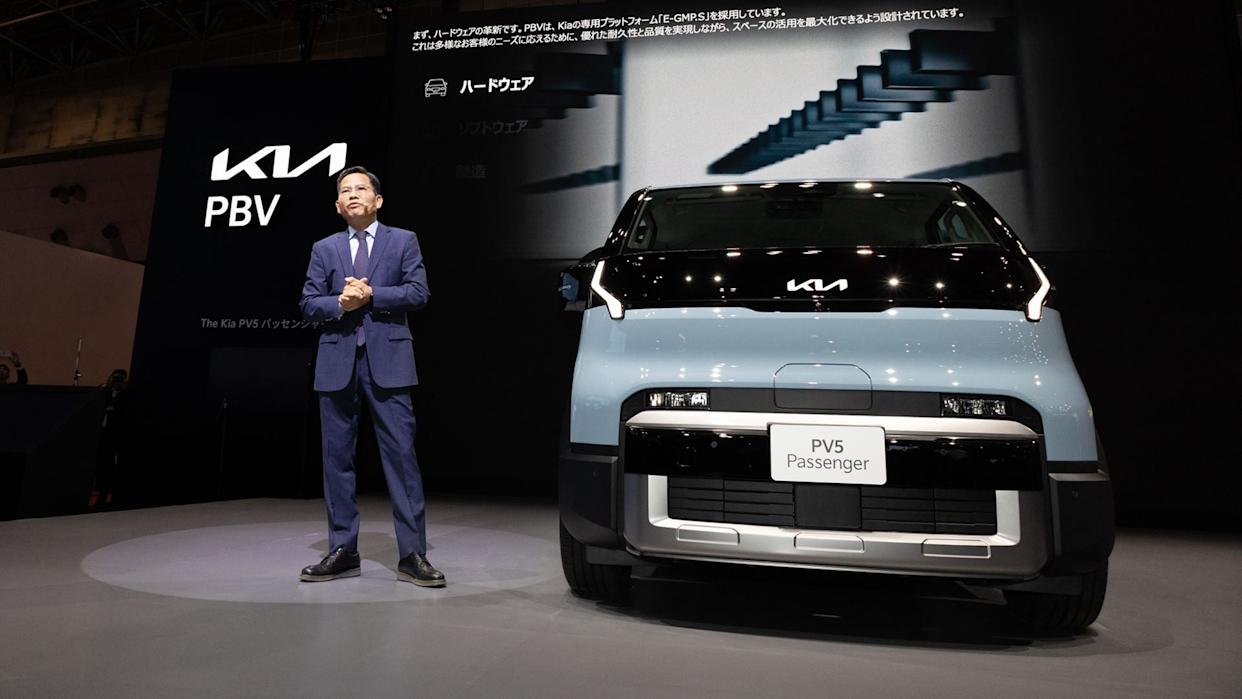South Korean automaker Kia Corporation has officially entered the Japanese market, launching its new PV5 battery-powered mini-bus and commercial van at the Japan Mobility Show 2025 in Tokyo. This initiative marks a significant step in Kia’s global expansion strategy, particularly in a market that has historically been challenging for foreign brands.
The PV5 is built on Kia’s innovative “Platform Beyond Vehicle” (PBV), a purpose-designed battery electric vehicle (BEV) platform. Production of the PV5 began in July 2025 in South Korea, utilizing a modular architecture that allows for various body types to be constructed on the same platform. The launch is timely, as Japan’s domestic market shows increasing interest in BEVs, despite foreign brands currently accounting for only about 5% of total vehicle sales.
Kia’s entry into Japan is further bolstered by a distribution partnership with the Sojitz Group, a diversified Japanese corporation involved in automotive, infrastructure, energy, and consumer services. The two companies have established Kia PBV Japan, a sales subsidiary managed by Sojitz, which will oversee Kia’s PBV strategy within the country.
Kia aims to establish a network of eight dealers and 100 service centers across Japan within the next year, enhancing its market presence and support infrastructure. The PV5 is equipped with a 71 kWh battery pack, offering a driving range of up to 521 km on a single charge. This aligns with Kia’s strategy to cater to the growing demand for electric vehicles in Japan.
Looking ahead, Kia plans to introduce additional models under the PBV brand, including larger commercial vehicles such as the PV7 in 2027 and the PV9 in 2029. These expansions signify Kia’s commitment to developing a robust portfolio tailored to the evolving needs of Japanese consumers.
In a statement, Sangdae Kim, Kia’s executive vice president responsible for the PBV Division, emphasized the significance of the PV5. He stated, “The PV5 is not just a vehicle – it is a mobility platform designed to meet the diverse needs of customers in Japan. Through our partnership with Sojitz Group, we aim to deliver meaningful solutions that support people, empower businesses, and strengthen local communities, supported by a robust foundation of sales, service, and charging infrastructure.”
Kia’s approach in Japan reflects a broader trend as several international automakers, including BYD, BMW, Mercedes-Benz, and Hyundai, are increasingly targeting the country’s expanding BEV market. As local brands appear to lag behind in this segment, Kia’s strategic entry may position it advantageously to meet the evolving preferences of Japanese consumers.
As this partnership unfolds, the automotive landscape in Japan is poised for potential shifts, with Kia aiming to establish itself as a trusted partner in the market. The company’s focus on innovation and local collaboration could pave the way for a new era of mobility solutions tailored specifically for Japan.







